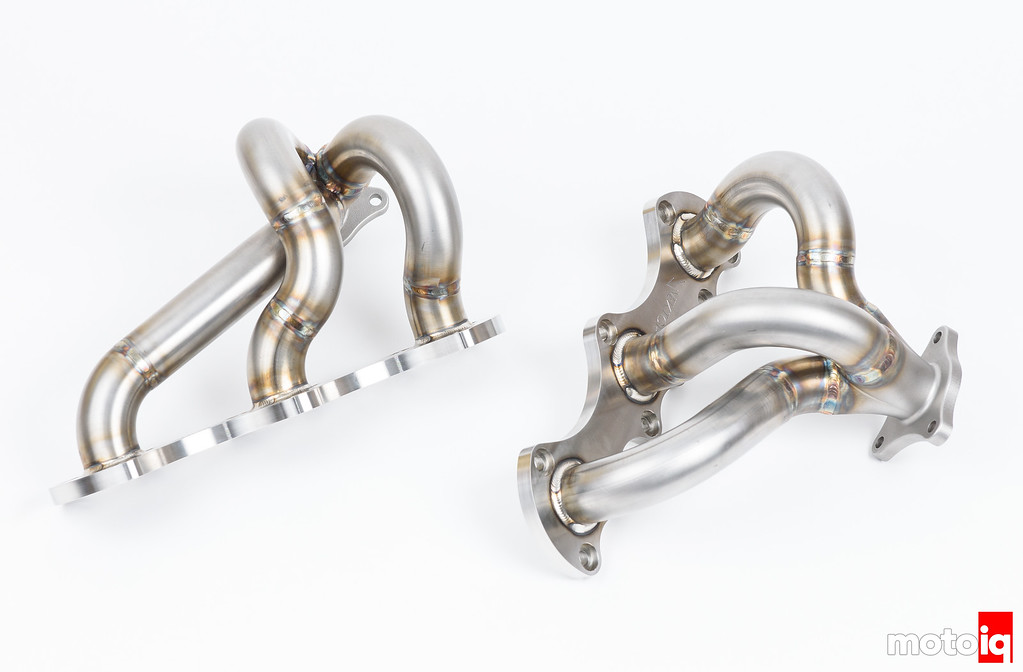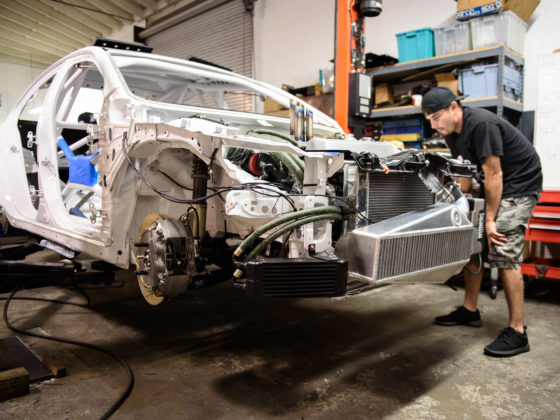

We once again ran the car 8 consecutive times and were again pleased to note the car settled down quickly and began to belt out very equal power numbers after only two pulls.

We were pleased to see that the ECU’s long and short term trims were centered and exactly like stock. This means that the ECU was not excessively actively adapting for overly rich or lean conditions once it learned the new headers. This also means that we will not be getting any mysterious check engine lights down the road.

The headers power gains were from 4,300 rpm upward. This is impressive considering it is for replacing the manifold only and the headers are still breathing through a completely stock exhaust system with no tuning changes whatsoever.
One of the things that did not equate exactly to the dyno chart is that the car felt like the gains were larger than the numbers suggested. The car seemed much more responsive and lively to drive, like the boost transient time was reduced and the cars time to torque was greatly improved.




6 comments
After admiring Porsche’s from afar for years and pretty much driving every Porsche made from the 60-90’s my thought has always been work harder and save up for the Turbo model. But since every model is now turbo like you point out and with the aftermarket coming to the rescue like these Vecktor headers it doesn’t seem that thought it really as valid anymore. Porsche’s in particular are known to be one of those cars that aftermarket parts often make less hp than stock so it’s great to see the opposite.
The 991.2 turbo is in another world compared to the 991.2 carrera.
You’re going to spend a ton of money to get the 3.0L to the 3.8L level.
I’ve heard from monstaka (french tuner) that catless pipes made a huge difference on their 510hp 991.2 S.
The base Carrera does start $70k below the base Turbo. Suppose you start with the Carrera GTS which has the biggest turbos and is $40k cheaper than a base Turbo. A tune alone on 93 octane bumps up the power 19%, or just short of the Turbo.
The biggest exhaust restrictions on the 911s are the headers and cats. On the stock tune, there’s not much to be gained with an exhaust, but they may be different with a tune. Add in headers to the tune on a GTS and it should be right at Turbo power. So basically for about $5k. Granted, your warranty is probably gone. The GTS does weigh about 200lbs less than the Turbo. Add some high flow cats and intercoolers for even more power. I’d guesstimate another 30whp or so.
I agree, Porsche aftermarket parts, as well as other exotic and semi-exotic cars, often have poorly engineered and validated performance parts that are both expensive and not performance enhancing. Sometimes they are poorly made as well. I have been surprised that the parts for Japanese cars for instance from reputable manufacturers are often made better and perform better. These Vektor Performance headers are impressive however in construction quality, engineering, and performance increase. I would really like to add a cat back and an access port to these. A few tweaks and you could probably get a Carrera to easily give the high buck Turbos and GT3’s the business.
With pure bolt-ons (exhaust, headers, ICs, hybrid turbos), E85, and COBB AccessPort, it’ll do over 600whp. Figure you buy a base model off lease for ~$70k, you can have a 600whp Turbo beating car for under $90k.
From what I understand the engine is very reliable at this power level as well.